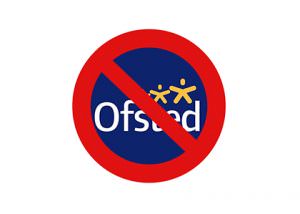Isn’t it a bit too late for self-assessment training?

Actually, no. Arguable, there’s no better time in the year than right now for a cold, hard look at the system you’ve been using.
Self-assessment training for managers and system architects
Wednesday November 4th. 09:00 – 12:15 – Online
The main question, as ever, is: is your system working? Is it a process loved by staff, one that promotes research, creativity, experimentation and evaluation? Or is it just another form of accountability inspection? There are a lot of part-time inspectors out there who would happily train you how to write an inspection-style report, but is that what you really need to drive provision forward? In a moment, I’ll share with you two reasons why you should put Ofsted as far from your mind and your system as you can when considering your self-assessment process.
I love self assessment. It’s one of the most creative and rewarding aspects of our role as educators – or at least it should be. I completed my first report at the end of my first teaching year in 1987/8, not because anyone told us to, but because as pioneers in pop-music education, we simply wanted to know what wasn’t working and to find strategies to improve our positive impact. Since then, as a critical friend, lead inspector, manager of the inspectorate’s nominee training events, and consultant, I’ve worked on somewhere in excess of 4500 SARs, and I still love it – despite the problems with the process..
I guess the main issue is that front-line staff generally don’t love it, but it’s really not their fault. They’re often given a form to complete, and so they complete it – a bit like a student doing a BKSB test; you know what I mean? They simply ‘answer’ the questions they’re given. They often cut and paste text from one answer to the next, or even one year to the next. In short, they describe to others what they do. In these instances, a change of title from ‘Self-Assessment Report’ to ‘PR document for my department’ would probably better describe the content.
But when you engage these same staff in an evaluative conversation about their work and get them to ask the right questions of themselves, you realise that anyone can love self assessment – if it’s done correctly.
The CCQI Self-Assessment Strategy is a big conversation captured on a simple form. That said, there’s nothing pedestrian about this ‘simple’ form. It’s ‘simple’ because it contains just 9 more or less, empty boxes: one for each step of the learner’s journey, one for curriculum management, and one for central leadership. It’s the process around the form that allows the magic to happen.
It goes without saying that the training on Wednesday will take delegates through the alchemy that choreographs the evaluative conversations and turns them into bold, creative thinking, so I’ll restrict this piece to the promised comments about avoiding Ofsted.
Ideally, I wanted to nip onto Ofsted’s reports site and download the very latest report for this illustration, but due to Rona, there haven’t been any full inspections for a while. Itchen College is the most recent monitoring visit (just a few weeks ago [Sept 2020]), so these extracts are from their RI inspection back in 2018. The quotes are from the recommendations section:
- ‘Improve the quality of teaching, learning and assessment by training teachers to plan and teach lessons that help students to excel.’
- ‘Ensure that teachers’ feedback to students on their work identifies accurately and precisely the skills, knowledge and behaviours they need to improve. Monitor the quality and impact of teachers’ feedback and set them targets for improvement when it is not of a high enough standard.’
What most providers (or dare I say ‘all’?) do, is cut and paste these recommendations into their development plan, then proceed to say what they’re going to do about them. And this is where bureaucracy starts to flood into your system’s and staff’s day jobs.
Read the first quote again and ask: ‘So why’s that then?’ In other words, precisely what is the issue that the training needs to address? Is it that:
- teachers know their subjects so well that they don’t feel they need to spend ages writing a plan?
- there is a mismatch between the assumed skills in the scheme of work and learners’ skill on entry?
- learning outcomes are really ‘to-do’ lists rather than expressions of how a learner should be different by the end of the lesson?
- the poor social dynamics in the classroom prevent too many learners from attempting to express themselves eloquently for fear of the sarcasm they associate with getting it wrong?
- teachers don’t effectively focus on the development of learners’ critical reflection skills, and evaluative and vocational vocabularies? Or that
- teachers believe the phrase: ‘teaching, learning and assessment’ – relegating assessment to be forever summative (done after the learning has supposedly happened) rather than formative (done as part of the learning process; inextricable from ‘teaching’)?
If you can’t articulate the issue precisely, you won’t be able to address it.
Now read the second quote and repeat the process.
The frequency with which Ofsted cuts-and-pastes this bullet breaks my heart. Time and again, inspectors criticise teachers’ feedback to learners, arguably without realising the consequences of their actions. They don’t seem to realise that this bullet with go straight into teachers’ action plans, and that observation will focus on yet more and more teacher-centred assessment of learners’ work. But is that what we really want for plan A? Of course it isn’t. It is pretty much guaranteed to build dependency on teachers, rather than independence of them.
Play A surely must be to build learners’ critical-reflection skills so well that they continually feedback on their own and peers’ work, with teacher as architect of the system. I could go on..
 But there’s a much, much bigger reason to avoid Ofsted when designing your quality-improvement system. Once you see it, you won’t be able to un see it. If you’re curious, come and spend the morning with us on Wednesday November 4th; it will help you lockdown an approach to self assessment that could change your staff’s relationship with quality, research and improvement.
But there’s a much, much bigger reason to avoid Ofsted when designing your quality-improvement system. Once you see it, you won’t be able to un see it. If you’re curious, come and spend the morning with us on Wednesday November 4th; it will help you lockdown an approach to self assessment that could change your staff’s relationship with quality, research and improvement.
Location Zoom
Time Wednesday November 4th (09:00 – 12:15)
Cost Please use this link to the Skills and Education Group
To join the CCQI Research Network, do please click here.




Comments
No comments yet